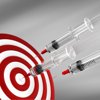Fritextsökning
Artiklar per år
Innehållstyper
-

“Conducting research at universities is becoming more and more like working at a research hotel”
The government wants Swedish research to focus on excellence and innovation, but can the two be combined? Life Science Sweden talks to Anna Falk, a professor at Lund University, about research policy, the constant hunt for funding in academia and what constitutes ‘fine research’.
-

Karriärcoachen: Så vet du om chefen vill bli av med dig – och så ska du agera
Har chefen börjat lämna fikarummet om bara du är där? Får du plötsligt arbetsuppgifter som är långt under din kompetens? Karriärcoachen Tina Persson guidar dig till vad du ska göra om du misstänker att din chef vill att du ska sluta.
-

Samuel Lagercrantz: “Companies that do this successfully will take the lead”
The development of new medicines and medical technologies should not focus too narrowly on prolonging life. It is equally important to develop treatments that relieve pain or eliminate painful symptoms, writes Samuel Lagercrantz in an editorial.
-

Bayer has cut 1,500 roles – so far
German chemical and pharmaceutical group Bayer cut more than 1,500 roles in the first quarter alone– and most of them were management positions.
-

Upptrappning av vårdkonflikten – facket varslar om strejk
Vårdförbundet trappar upp avtalskonflikten och varslar om strejk för 2 000 medlemmar. Storsjukhusen i Stockholm, Västra Götaland, Skåne, Östergötland och Västerbotten berörs.
-

Total pipeline of pharmaceutical companies reaches a record high – 22,921 medicines are currently being developed
Despite the difficult economic times, pharmaceutical companies have never developed as many new drugs as now.
-

Utökat samarbete mellan KI och Chiesi
Italienska Chiesi och Karolinska institutet utökar sitt samarbete inom bland annat luftvägssjukdomar.
-

Carl Borrebaeck – professor and serial entrepreneur with a taste for speed
Award-winning cancer researcher, the founder of many listed companies, and constantly in the academic and commercial spotlight for decades. However, Carl Borrebaeck, Professor of Immunotechnology at Lund, is not yet satisfied. “We have a new, potentially super exciting project in the pipeline,” he says.
-

Astra Zeneca i strategiskt samarbete om precicisionmedicin
Införandet av precisionmedicin i Sverige ska skyndas på genom ett nytt strategiskt samarbete mellan Karolinska institutet, Karolinska universitetssjukhuset och Astra Zeneca.
-

Ancient DNA provides new insights – “The immune system lost its job”
Ancient bone remains from our ancestors have provided new insights into the prevalence of multiple sclerosis. By looking back in time, researchers can provide a possible explanation for why the disease is more prevalent in northern Europe.
-

Vårdkonflikten rycker närmare – bara timmar återstår
En konflikt inom vården rycker allt närmare sedan parterna nobbat både bud och motbud. Varslet om bland annat övertidsblockad träder i kraft klockan 16 på torsdagen.
-

Varslet växer – även ambulanser berörs
Ambulansförbundet gör gemensam sak med Vårdförbundet och varslar om konfliktåtgärder.
-

Nocebo – the evil twin that makes you feel worse
The placebo effect is well known in healthcare, but not so its opposite: nocebo. “The effect is small, but it can have major repercussions,” says Uppsala researcher Charlotte Blease, co-author of a book on the phenomenon.
-

The Covid pandemic accelerated the development of cancer vaccine
The Covid pandemic gave a major boost to the vaccine field. The Danish biotech company Expres2ion Biotechnologies, which is developing a vaccine against breast cancer, testifies to this.
-

KI:s frysfiasko utrett: En kedja av brister
Det var en kedja av både tekniska och organisatoriska brister som tillsammans orsakade fryshaveriet på Karolinska institutet under julhelgen, då över 47 000 prover förstördes. Det har en intern utredning kommit fram till.
-

Study: Popular diabetes treatment is not associated with thyroid cancer
Concerns raised about an association between GLP-1 analogues, used to treat diabetes and obesity, and an increased risk of thyroid cancer are not supported by an extensive Scandinavian study.
-

Settlement of cancer allegations against blockbuster drug
French pharmaceutical company Sanofi has reached a principal agreement in the US on around 4,000 of the cases in which its now withdrawn blockbuster heartburn drug Zantac allegedly had caused cancer.
-

Förlikning om canceranklagelser mot storsäljande läkemedel
Det franska läkemedelsbolaget Sanofi har nått en principöverenskommelse i USA om cirka 4 000 av de fall där företaget stämts för att inte ha varnat patienter om att det numera indragna läkemedlet Zantac mot halsbränna kan framkalla cancer.
-

Specific proposals and targets top the universities’ desired priorities
What are the universities’ expectations for the update of the national life science strategy? Life Science Sweden posed the question to representatives from Karolinska Institutet and Sahlgrenska Academy.
-

Venom from the deathstalker carries radiopharmaceuticals to the brain
In order to target cancerous brain tumours with radionuclides, the problematic blood-brain barrier must first be crossed. Life Science Sweden has visited a KI researcher who is trialling an unusual approach ‒ using scorpion venom.
-

“Life science is important on a personal level”
From the High Coast to the Government Offices. Jeanette Edblad is a native of Ångermanland, and since September last year, she has been Head and Coordinator of the Government’s Life Science Office.
-

Klartecken till nytt anmält organ för MDR – ”Vi är redo”
Sverige har fått en ny aktör med rätt att certifiera enligt det nya europeiska regelverket MDR.
-

Life science-strategin – detta vill branschen se
Arbetet med att uppdatera den nationella life science-strategin har påbörjats vid regeringens life science-kontor. Sveriges konkurrenskraft, tillgängliggörandet av hälsodata och integrering av innovation inom vården är några av punkterna som är viktiga att se över enligt branschaktörer.
-

“What is important is to create an overview and understanding from different perspectives”
Scientist Jochen Schwenk analyses blood proteins using proteomics to improve our understanding of disease and health. This year, he is moderating the Lab & Diagnostics of the Future event.